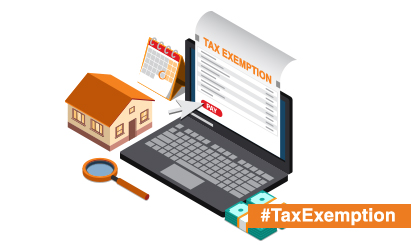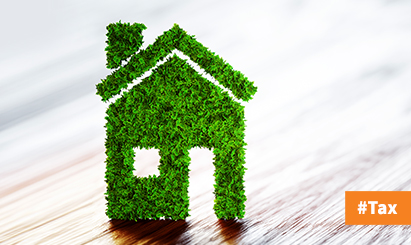Capital Gains – Tips To Reduce Your Capital Gains Tax!
Land is arguably the best example of a Capital Asset and and as an asset whose value appreciates overtime, a landowner can sweep huge capital gains on its sale.
However, note that agricultural land in India is not considered a Capital Asset. Thus, capital gains isn’t applicable on its sale. In this article we’ll find out what Capital gains is, how to calculate it & ways to reduce the tax on it.
What’s Capital Gains?
Capital gains is simply the profit you make when you sell a capital asset such as a residential house, a plot, a commercial building or any other capital asset for a higher price than the price you paid for buying it. The rates levied are 20% for Long Term Capital Gains (LTCG) i.e., Sale of property held for more than two years (24 months) & Short Term Capital Gains(STCG) i.e., Sale of property held for up to two years, depending on an individual’s tax bracket.
How To Calculate Capital Gains?
For Short Term Capital Gains – From the total Sale Price of the asset deduct cost of acquisition, expenses directly to sale, cost of improvements(if any) also deduct exemptions allowed under section 54(f), the resulting amount is the Short Term Capital Gain.
For Long Term Capital Assets – The difference is that, you are allowed to deduct Indexed Cost of Acquisition, Cost of Improvements from the sale price. Indexation is done by applying a cost inflation index. This increases your cost base lowering your gains since the purchase price is adjusted for the impact of inflation.
Ways to Reduce Capital Gains Tax
Capital gains tax you have to pay when selling a property can be alot. However, using the methods we’ve provided below, you can reduce it significantly:
# Avail exemptions of Section 54(f) when you construct/buy a residential property
People usually sell their old house to pay for the new one. In these cases, if you use the sale proceeds obtained from selling your old property to pay for the new one, you are exempted from capital gains tax under Section 54(f), if you meet the following conditions:
- Buying a new house one year before the sale of the old house.
- Buying a new house two years after the sale of the old house, or constructing a new house up till three years after selling the old house.
- Not selling the new house for the next three consecutive years; or else the exemptions are withdrawn.
Exemptions provided under Section 54(f) are ideal for people who sell a property to pay for the purchase of a new residential property.
# Investing in capital gains account schemes
If you have failed to invest your capital gains until the date of filing of income tax return of the financial year in which you have sold your property, you are allowed to deposit your profits in a PSU bank or other banks as per the Capital Gains Account Scheme. In your claim this is an exemption from your capital gains, you don’t need to pay tax on it. However, you are required to invest this money you have deposited within the period specified by the bank, if you fail to do so, your deposit shall be treated as capital gains.
# Purchasing capital gains bonds
As per Section 54EC which is applicable in case of long term capital asset you can save the tax on your capital gains, by investing in certain bonds. Bonds issued by the National Highway Authority of India or Rural Electrification Corporation have been provided for this purpose. These can be redeemed after 3 years and should not be sold before the lapse of 3 years from the date of sale of the house property. You are given a period of 6 months to invest in these bonds. Although to claim this exemption, you will have to invest before the return filing date.
# Invest for the long term
Find companies with solid potential and hold their shares for the long term, you will pay the lowest rate of capital gains tax. This is obviously easier said than done as a company’s valuation can change exponentially over the years, and there are multiple reasons you might want or need to sell earlier than you originally anticipated.
# Set off all your capital losses
This is one of the most suitable ways to save tax on capital gains resulting from the sale of your property. It enables you to set off all capital gains against the capital losses you might’ve incurred earlier. However, the capital loss must be from a prior date, and short term capital loss can be only set off against short term capital gains.
Lastly!
Investing in real estate properties can add to asset creation to provide you with financial protection and stability for the future. Hence, by benefiting from the tax-saving schemes & provisions as discussed above, you can legally avail the maximum advantage on your property investment.
Disclaimer: The views expressed above are for informational purposes only based on industry reports and related news stories. PropertyPistol does not guarantee the accuracy, completeness, or reliability of the information and shall not be held responsible for any action taken based on the published information.




